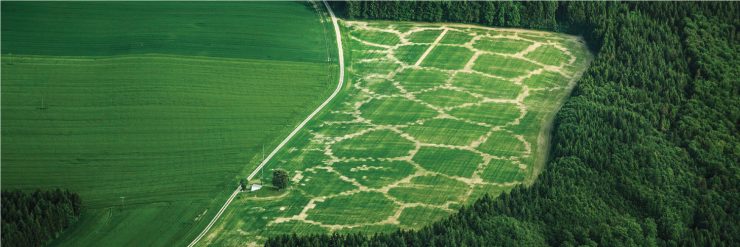Indian Agriculture has seen a technology transformation since 2014, led by 450+ agtech start-ups. Several promising solutions on Agri inputs, farmer financing, market linkages and Agri intelligence have come up. However, these enterprises face two key challenges – quick adoption of their technology at scale, and access to data that will make their solutions more accurate and relevant. Villgro, together with SatSure held a webinar on August 20th, bringing together financial institutions, agtech enterprises and impact-led organisations to discuss these problems and potential solutions.
Panellists: Purushottam Kaushik (Head, Center for the Fourth Industrial Revolution India), Harrie Vollaard (Head, Rabo Frontier Ventures), Ritu Verma (Co-Founder, ThinkAg/Ankur Capital), Arjun Ahluwalia (Founder, Jai Kisan), Purvi Mehta (Asia Lead, Agriculture, Bill & Melinda Gates Foundation) and Prateep Basu (CEO, SatSure Switzerland & India)
Moderator: Srinivas Ramanujam (CEO, Villgro Innovations Foundation)
Collaboration is Key
The Indian farmer’s willingness and ability to adopt tech has been grossly underestimated. If the technology is easy to use and affordable, they will use it. According to Harrie Vollaard, the focus should be to enable “farmers to have better control over their business, and this is where data comes in”. Today there are multiple technologies, working in silos, making it inconvenient for the farmer to adopt them. Dr. Purvi Mehta stressed on why agro-dealers attract farmers, “the biggest thing they offer is the packaged service”. The panellists discussed the possibility of collaboration amongst various players in the ag-tech ecosystem to bring together a single comprehensive solution to the farmer – inputs, advisory, farm gate processing, credit and market linkages. They agreed unanimously that the start-up which, in a Darwinian sense could adapt best, in this case, collaborate most effectively, would be the winner. “Entrepreneurs need to see that the whole is greater than the sum of the parts” emphasised Ritu Verma.
Regarding access to data, Prateep Basu said “there is no framework for people to share data” because of which “analytics built on data is inefficient”. Today start-ups are spending disproportionately on collecting data themselves through satellite and IoT sensors. Similar collaboration on the data sharing front, like the creation of a data commons, would expedite tech development, allowing start-ups to focus their resources on analytics, AI and transformational innovation instead.
Infrastructure for Trust
Now, this leads us to the key question – How do we collaborate? Or rather, how do we trust each other?
Here, an architecture for agricultural data will be immensely helpful, similar to IndiaStack and the Health Stack that is in development. This infrastructure will facilitate aggregation of data and make it usable by instituting standards and security protocols that will support interoperability and APIs that the ecosystem, including agtech enterprises, can then build on top of. This structure will also build trust, encouraging start-ups and other ecosystem players to share their data more freely. Dr Purvi Mehta rightly cautioned, “it’s not just data collection, but data utilization and sharing that is important. This is where a public-private partnership is critical”.
The Need of the Hour
“Indian agriculture is not data-starved. We need to keep an eye on the value and connect the right pieces” suggested Srinivas Ramanujam. Most states have disaggregated data over 40-50 years, and data dashboards. The Centre for Fourth Industrial Revolution is working with the Ministry of Agriculture and Govt. of Telangana to build digital infrastructure and datastack for agriculture. Purushottam Kaushik emphasised their work to “make this data dynamic and secure while making it available”.
Some avant-garde start-ups have also joined this journey. SatSure has been engaging with ecosystem players to promote the idea of a data highway that enables interoperability between datasets and an open API on which analytics, apps and more can be built. On Jai Kisan’s financing solutions for farmers, Arjun Ahluwalia said “we have been able to bring the entire value chain to the farmer”, both buyers and sellers of credit.
There is great potential for the Government to play the role of catalyst here. As the EU did with banks, they can push large players to open their data to the public. Alternatively, the Government could bring together a consortium to lead and fast-track this process. This would require the participation of the entire ecosystem and lead by an organisation seen as credible to all players.
The hope is that the current initiatives build the momentum for a vibrant Agri ecosystem powered by an AgriStack – a digital data commons for ready and almost instant access to farmers.
Written by Villgro Innovations Foundation in collaboration with SatSure. This story was first published in The SatSure Newsletter (TSNL).





Add comment